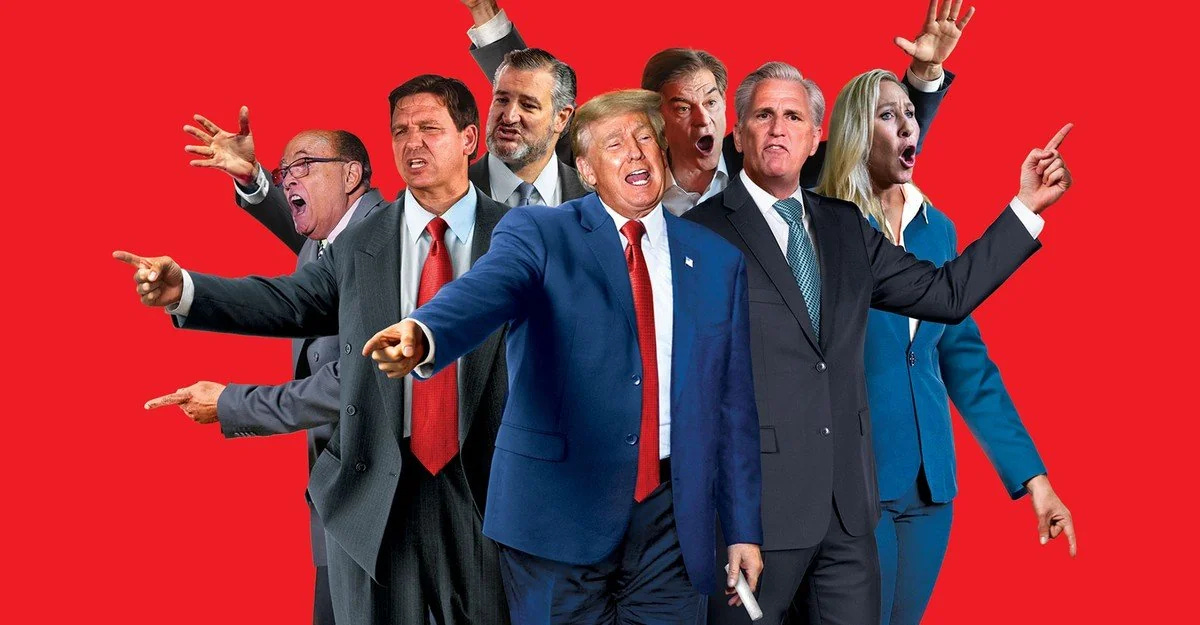Getting 'Weird' with It: Unpacking the Latest Political Name-Calling Strategy
In the ever-evolving, bizarre landscape of political discourse, the Democratic Party has recently adopted a new strategy that revolves around a single, seemingly innocuous word: "weird."
In the ever-evolving, bizarre landscape of political discourse, the Democratic Party has recently adopted a new strategy that revolves around a single, seemingly innocuous word: "weird." This tactic, which has been prominently featured in Kamala Harris's 2024 presidential campaign, aims to paint Republican opponents as fundamentally strange and out of touch. But what lies behind this choice of language, and what are its potential implications?
The Design of the 'Weird' Strategy
The strategy to label Republicans as "weird" is a calculated move designed to tap into the emotional and psychological underpinnings of voter behavior. By framing their opponents as odd or unsettling, Democrats aim to create a visceral reaction that transcends policy specifics. This approach leverages the power of social and cultural norms, suggesting that voting for Republicans is not just a political choice but a socially awkward one.
The use of the term "weird" is particularly effective in its simplicity and relatability. It doesn't require voters to understand complex policy issues or historical contexts. Instead, it appeals to a basic human instinct to avoid what is perceived as abnormal or socially unacceptable. This tactic is especially potent in an age where internet culture and memes can amplify and perpetuate such characterisations rapidly.
Potential Effectiveness
The effectiveness of this strategy lies in its ability to target low-information voters—those who may not be deeply engaged with the intricacies of policy but are influenced by general impressions and social cues. By repeatedly associating Republicans with the label "weird," Democrats hope to create a lasting negative perception that is difficult to shake off.
Moreover, this approach can be particularly resonant among younger voters who are more attuned to internet culture and the language of memes. The idea of "weirdness" can quickly become a part of the zeitgeist, making it a powerful tool for shaping public opinion.
Risks and Downsides
However, this strategy is not without its risks. For more informed voters who seek substantive arguments and detailed policy discussions, the "weird" label can come across as superficial and insulting. These voters may view the tactic as a sign that Democrats are unwilling or unable to engage in serious debate, potentially alienating a segment of the electorate that values intellectual rigor.
Additionally, the focus on personality and social acceptability over policy can contribute to the further degradation of political discourse. In an era where politics is already heavily influenced by sensationalism and sound bites, this strategy risks deepening the divide between substantive debate and superficial character attacks.
The Broader Context: Politics as 'Weird'
It's important to acknowledge that modern politics, regardless of party affiliation, can often be considered "weird." The rise of unconventional candidates, the influence of social media, and the blurring of lines between entertainment and politics have all contributed to a political landscape that is increasingly surreal and unpredictable.
By labeling their opponents as "weird," Democrats are tapping into a broader cultural sentiment that finds much of contemporary politics to be bizarre and unsettling. This strategy reflects a recognition that voters are not just choosing between policies but are also navigating a complex web of social and cultural signals.
A Nuanced Perspective
In conclusion, the use of the word "weird" as a political talking point is a double-edged sword. On one hand, it is a clever and potentially effective way to shape perceptions among low-information voters and those influenced by social norms. On the other hand, it risks alienating more informed voters and contributing to the further trivialisation of political discourse.
This strategy underscores the current state of political messaging, where emotional appeal and social signalling often take precedence over substantive debate. As voters, it is crucial to remain aware of these tactics and strive for a more informed and nuanced understanding of the issues at hand. While the "weird" label may resonate on a superficial level, the true test of any political strategy lies in its ability to address the deeper concerns and aspirations of the electorate.


